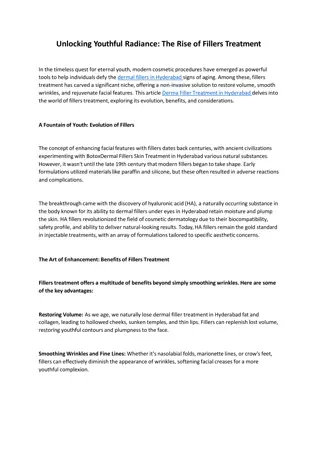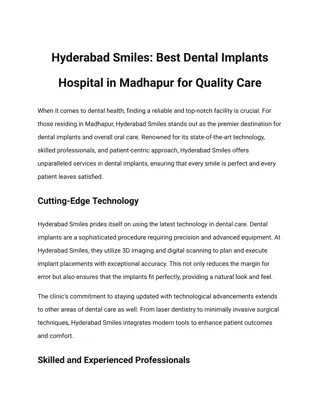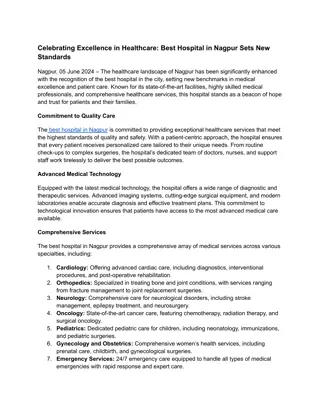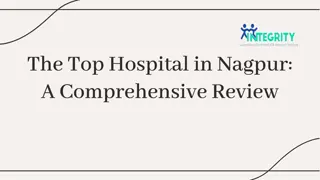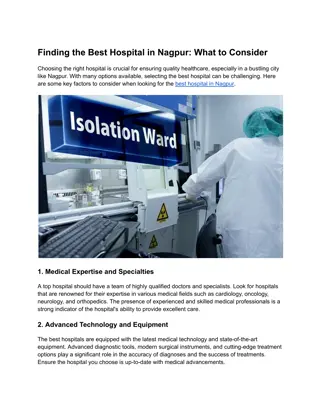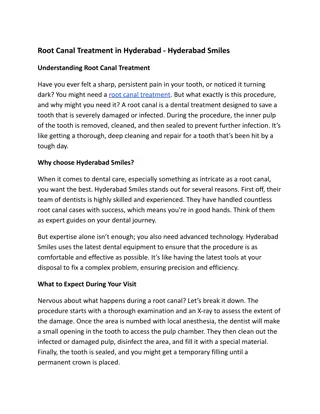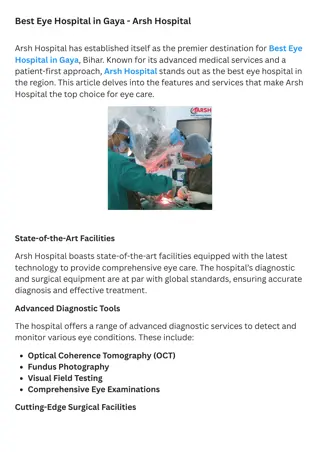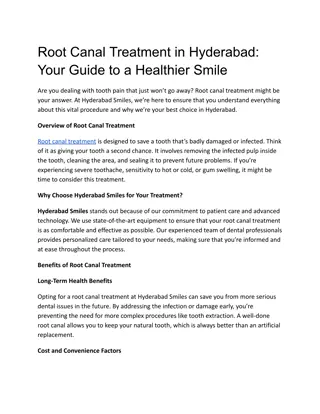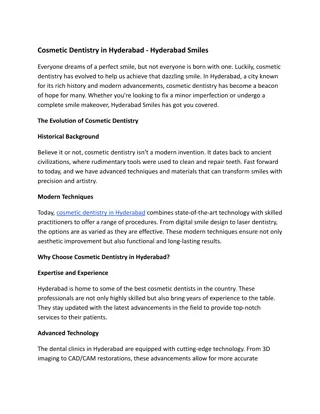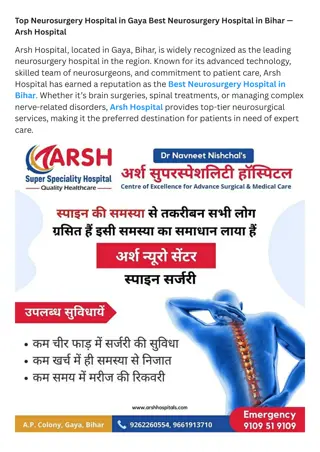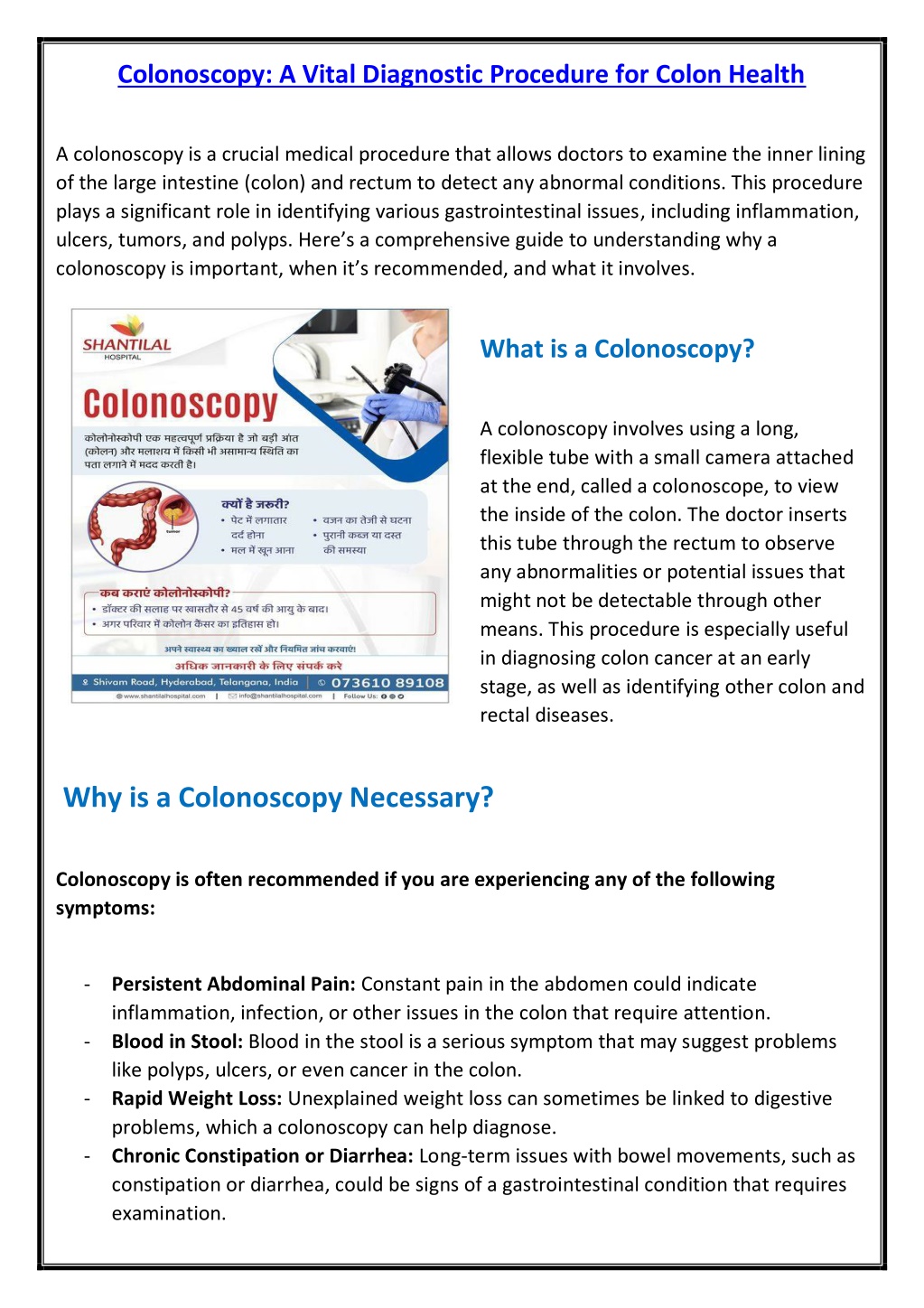
Colonoscopy Treatment in Hyderabad - Shantilal Hospital
Welcome to Shantilal Hospital, where your orthopaedic health is our priority. Meet Dr. Anish Kumar Jain, a skilled specialist in orthopaedics, trauma, fractures, joint replacements, arthroscopy, and spine care. Located in Hyderabad, Telangana, our ho
Download Presentation

Please find below an Image/Link to download the presentation.
The content on the website is provided AS IS for your information and personal use only. It may not be sold, licensed, or shared on other websites without obtaining consent from the author. Download presentation by click this link. If you encounter any issues during the download, it is possible that the publisher has removed the file from their server.
E N D
Presentation Transcript
Colonoscopy: A Vital Diagnostic Procedure for Colon Health A colonoscopy is a crucial medical procedure that allows doctors to examine the inner lining of the large intestine (colon) and rectum to detect any abnormal conditions. This procedure plays a significant role in identifying various gastrointestinal issues, including inflammation, ulcers, tumors, and polyps. Here s a comprehensive guide to understanding why a colonoscopy is important, when it s recommended, and what it involves. What is a Colonoscopy? A colonoscopy involves using a long, flexible tube with a small camera attached at the end, called a colonoscope, to view the inside of the colon. The doctor inserts this tube through the rectum to observe any abnormalities or potential issues that might not be detectable through other means. This procedure is especially useful in diagnosing colon cancer at an early stage, as well as identifying other colon and rectal diseases. Why is a Colonoscopy Necessary? Colonoscopy is often recommended if you are experiencing any of the following symptoms: -Persistent Abdominal Pain: Constant pain in the abdomen could indicate inflammation, infection, or other issues in the colon that require attention. -Blood in Stool: Blood in the stool is a serious symptom that may suggest problems like polyps, ulcers, or even cancer in the colon. -Rapid Weight Loss: Unexplained weight loss can sometimes be linked to digestive problems, which a colonoscopy can help diagnose. -Chronic Constipation or Diarrhea: Long-term issues with bowel movements, such as constipation or diarrhea, could be signs of a gastrointestinal condition that requires examination.
If these symptoms are present, a colonoscopy can help identify the root cause and guide further treatment. When Should You Get a Colonoscopy? Doctors generally recommend getting a colonoscopy in the following cases: -Routine Screening for Individuals Over 45: Colon cancer risk increases with age. Therefore, routine colonoscopy screenings are recommended starting at age 45, even if there are no symptoms. -Family History of Colon Cancer: If there is a family history of colon cancer or related diseases, you may have a higher risk, and early screening can be life-saving. -Personal Medical History: Individuals with a history of inflammatory bowel disease, polyps, or other gastrointestinal issues may need more frequent screenings. Regular screenings help in detecting and preventing colon cancer by identifying and removing precancerous polyps before they turn cancerous. Benefits of a Colonoscopy A colonoscopy is a powerful diagnostic tool with several benefits, including: -Early Detection of Cancer: Colonoscopies can detect colon cancer at an early stage, increasing the chances of successful treatment. -Prevention of Serious Health Conditions: By identifying and removing polyps or abnormal growths, a colonoscopy can reduce the risk of developing colon cancer. -Accurate Diagnosis of Symptoms: For symptoms like abdominal pain, blood in stool, or changes in bowel habits, a colonoscopy provides a clear view of the colon, helping to diagnose conditions such as Crohn s disease, ulcerative colitis, and diverticulitis. -Improved Treatment Plans: Once a diagnosis is confirmed, doctors can create a more effective and targeted treatment plan for conditions like irritable bowel syndrome (IBS), inflammatory bowel disease (IBD), and other gastrointestinal disorders.
How to Prepare for a Colonoscopy Preparation for a colonoscopy involves a few specific steps to ensure that the colon is clear for an accurate examination: -Diet Adjustments: A low-fiber diet is recommended a few days before the procedure. On the day before, you may be asked to consume only clear liquids. -Bowel Preparation: The doctor will prescribe a bowel prep solution to drink, which helps empty the colon. This step is crucial for a clear view during the procedure. -Fasting: You will need to refrain from eating or drinking anything for several hours before the procedure. What to Expect During and After the Procedure The colonoscopy typically takes about 30-60 minutes and is usually performed under sedation to ensure comfort. During the procedure, the doctor carefully examines the colon and may take biopsies or remove polyps if necessary. After the procedure, patients are monitored until the sedation wears off. It s common to feel mild bloating or gas, but this usually subsides within a few hours. Colonoscopy Risks and Complications While a colonoscopy is generally safe, it does have some risks, including: -Bleeding: If a biopsy or polyp removal is performed, slight bleeding may occur, but it is usually minimal. -Perforation: In rare cases, the colon wall can be punctured, which may require surgical repair. -Adverse Reaction to Sedation: Some people may have reactions to the sedative used, which is closely monitored during the procedure. Discuss any concerns or health conditions with your doctor before the procedure.
Take Charge of Your Digestive Health A colonoscopy is a valuable procedure that aids in the early detection and prevention of serious colon issues, including cancer. If you experience any of the symptoms mentioned or have risk factors, consult your healthcare provider to see if a colonoscopy is right for you. Early diagnosis and preventive care can make a significant difference in maintaining your digestive health. For more information or to book an appointment, contact Shantilal Hospital at: Phone: 073610 89108 Location: Shivam Road, Hyderabad, Telangana, India Website: https://www.shantilalhospital.com/ Email: shsocial24@gmail.com Taking proactive steps with regular screenings can help protect your health and provide peace of mind





